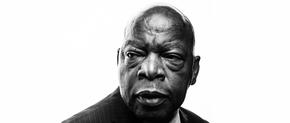The views expressed in our content reflect individual perspectives and do not represent the authoritative views of the Baha'i Faith.
par·a·digm n. 1. An example or model 2. A generally-accepted concept that explains a complex idea – Webster’s Dictionary
Throughout the evolution of humanity we’ve seen many necessary paradigm shifts—new ways of viewing reality. These shifts fuel new concepts and new behaviors, which can then advance civilization. One important paradigm shift started in Greece in the 6th century BC with the beginnings of democracy, which literally means rule by the people. Once the paradigm shifted and rule by the people emerged, then it became necessary to create a method, or political process, so the populace could elect its leaders.
Today, whether we have a direct democracy, a parliamentary democracy or a representative democracy, many people have begun to fairly question whether or not our political and electoral processes still advance the interests of humanity. Do they instill unity or disunity?
One definition of politics—war minus physical violence—accurately describes the elections we hold today in many countries. For candidates, campaign fund raising makes elections into money-driven battles, smothers idealism and imperils the ability to vote independently. Using any means to win requires bragging, belittling and dirty tricks. Intelligent discourse is smothered by divisive rhetoric, personal attacks and innuendos. The lowest inclinations of human nature—fear, hate and prejudice—are fostered to manipulate and gain political footholds. Voters, convinced the electoral system is corrupt and needlessly divisive, cynically stop participating in the process. Animosity, polarization and bitterness follow, with the consequence a complete inability to find the post-election unity necessary to create solutions to the issues we face.
The frustration, unease and confusion swirling around us may also come from an innate knowing that something we cannot quite identify has fundamentally shifted and changed. Abdu’l-Baha, early in the 20th Century, not only confirmed this change, but wrote that the spiritual forces necessary to propel humanity to a higher level of civilization and to a higher standard of what it means to be human had arrived:
The world of thought has been regenerated. Sciences of former ages and philosophies of the past are useless today. Present exigencies demand new methods of solution; world problems are without precedent. Old ideas and modes of thought are fast becoming obsolete. Ancient laws and archaic ethical systems will not meet the requirements of modern conditions, for this is clearly the century of new life, the century of the revelation of the reality and therefore the greatest of all centuries. – Abdu’l-Baha, Foundations of World Unity, p. 83.
In other words, our reality has changed—and we must change with it. Remaining mired in the past has severe consequences:
So long as this aping of the past persisteth, just so long will the foundations of the social order be blown to the four winds, just so long will humanity be continually exposed to direst peril. – Abdu’l-Baha, Selections from the Writings of Abdu’l-Baha, p. 24.
If we cannot continue to ape the political past, then the independent investigation of the truth becomes our solution. That independent investigation reveals a revolutionary electoral paradigm used today to democratically elect the administrative bodies of the Baha’i Faith around the world. Interestingly enough, it has none of the features we now think of as political.
Here’s how it works: Baha’i elections have no political parties, nominations, candidates, endorsements, speeches or campaigning. The corrupting influence of money is abolished. Ballots simply have blank lines, whereby the voter, in secret and without coercion, may freely enter the names of persons they know who display the highest character and are best-suited for the position. Baha’is receive this guidance for voting:
…consider without the least trace of passion and prejudice, and irrespective of any material consideration, the names of only those who can best combine the necessary qualities of unquestioned loyalty, of selfless devotion, of a well-trained mind, of recognized ability and mature experience. – Shoghi Effendi, Baha’i Administration, p. 88.
 This paradigm shift challenges us to elect better leaders, and allows us to do so without coercion or corruption. Humanity has outgrown the need to be told who to vote for—but this new maturity places a greater responsibility on voters to identify individuals who display these character attributes. This new electoral method maximizes the opportunity to elect people who are not seeking power for its own sake, and have a sincere desire to serve.
This paradigm shift challenges us to elect better leaders, and allows us to do so without coercion or corruption. Humanity has outgrown the need to be told who to vote for—but this new maturity places a greater responsibility on voters to identify individuals who display these character attributes. This new electoral method maximizes the opportunity to elect people who are not seeking power for its own sake, and have a sincere desire to serve.
After this apolitical election process takes place, there is the need for consultation between those who are elected. As servants of the people, views must be shared fully and frankly with courtesy, restraint and devotion. In order that truth does not remain hidden, insistence on personal opinions and agendas must be put aside. When a decision has been made, it is to be supported wholeheartedly and not undermined or sabotaged in any way. There must be detachment from the outcome. In this way solutions are found and then implemented.
The old, divisive principles of partisan politics, of necessity, must eventually give way to a new body politic. What can take their place is not a utopian dream but a reality right now. It is the concrete example provided in the revitalizing and unifying Baha’i paradigm of pure electoral democracy in use today all around the world to elect Local Spiritual Assemblies, National Spiritual Assemblies and The Universal House of Justice. Proven effective in managing the affairs of 100,000 Baha’i localities and millions of individual believers from diverse backgrounds and cultures, this new paradigm works—and can transform the way we govern ourselves.
To make this transition to a new, more effective paradigm, we only need to honestly answer the question which Abdu’l-Baha asks:
Shall man gifted with the power of reason unthinkingly follow and adhere to dogma, creeds and hereditary beliefs which will not bear the analysis of reason in this century of effulgent reality? – Abdu’l-Baha, The Promulgation of Universal Peace, p. 140.
If we are open to investigation, if we are open to change, if we believe we deserve better, then we can allow those who govern to rise to this call:
Strive ye, therefore, with the help of God, with illumined minds and hearts and a strength born of heaven, to become a bestowal from God to man, and to call into being for all humankind, comfort and peace. – Abdu’l-Baha, Selections from the Writings of Abdu’l-Baha, p. 250.
You May Also Like
Comments

















presents us with the conclusion that
the Baha'i model is the right one to
follow. As a Baha'i, I do believe that.
I also don't think the other authors on this site would deny they have reached their own conclusions. I believe Bahaiteachings.org wasn't
designed to be a purely open-ended
forum, but a place to show the relevance of Baha'i scriptures to life's
issues and then invite a discussion
mainly inside that framework. As far
as modern corruption goes, I get the feeling a huge number of Americans
think most officials are totally ...paid for and under the control of donors
and lobbyists. I have to say that I pretty much believe that, too. I don't
know if the sentiments about coercion are quite as strong, but there are various forms, as you say.
A person does hear a lot about voter
disenfranchisement around election
time, and that would be the corollary
of forcing people to vote for somebody. Yes, the Baha'i model has
not been used yet in civil government
on a large scale, but I like some of the
safeguards it has: no nominating, campaigning, or discussions about
potential administrative officeholders. As a related issue, it's
reputed that the League of Nations, and I assume the United Nations by
extension, was based on some Baha'i
principles, but I wouldn't blame any
failures of those bodies on flaws in
those principles, but instead on incomplete application and lack of a
spiritual component: if you don't have love, your dedication to justice
will be spotty. I like what Dale described about China, except for
the adversarial quality that always
creeps into secular politics!
Since I am presently living in China today, I have come to understand their political system a bit better and 'theoretically' speaking their system essentially follows the message of this article, i.e. small clusters choose their representative who then meet together and select a representative to meet and choose..etc., etc. etc. to the very top. The feeling is that based on the first selection should be by people who know the person well or best directly, therefore over time all governing individuals are known by the ...people and answerable to them. Unfortunately two main factions are emerging with the characteristics of the worst aspects of an adversarial party system.
It's a bait ...and switch article from the current style of democracy is bad and people should look for something new to don't look for any new models, just adopt the Baha'i one instead of some third or forth or whatever model people find on their own.